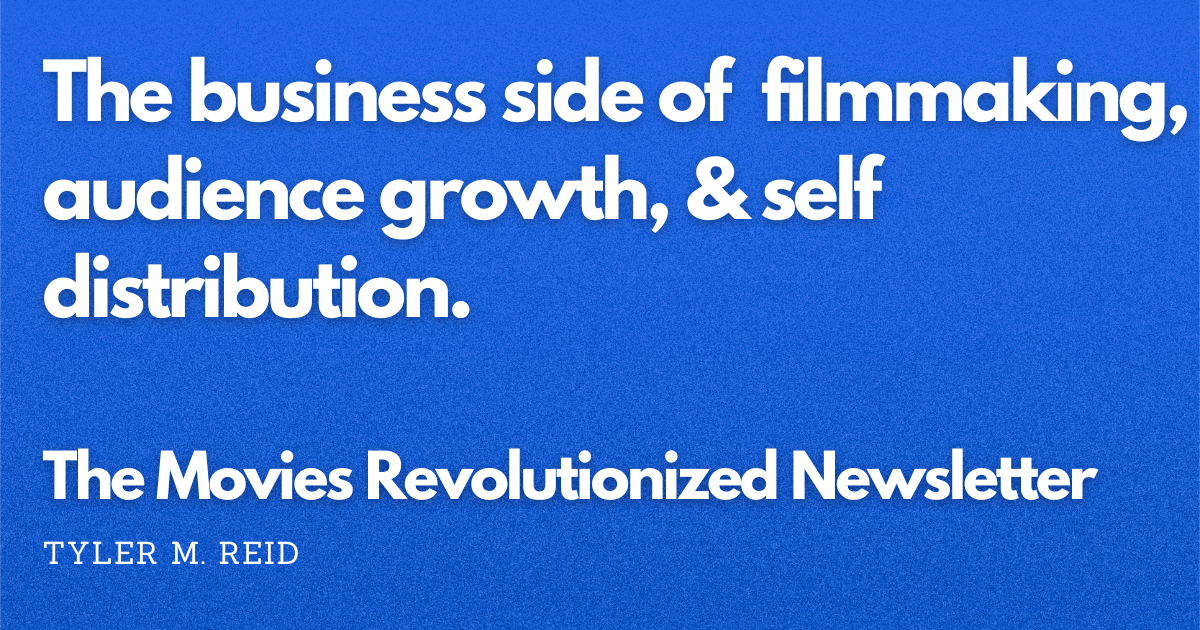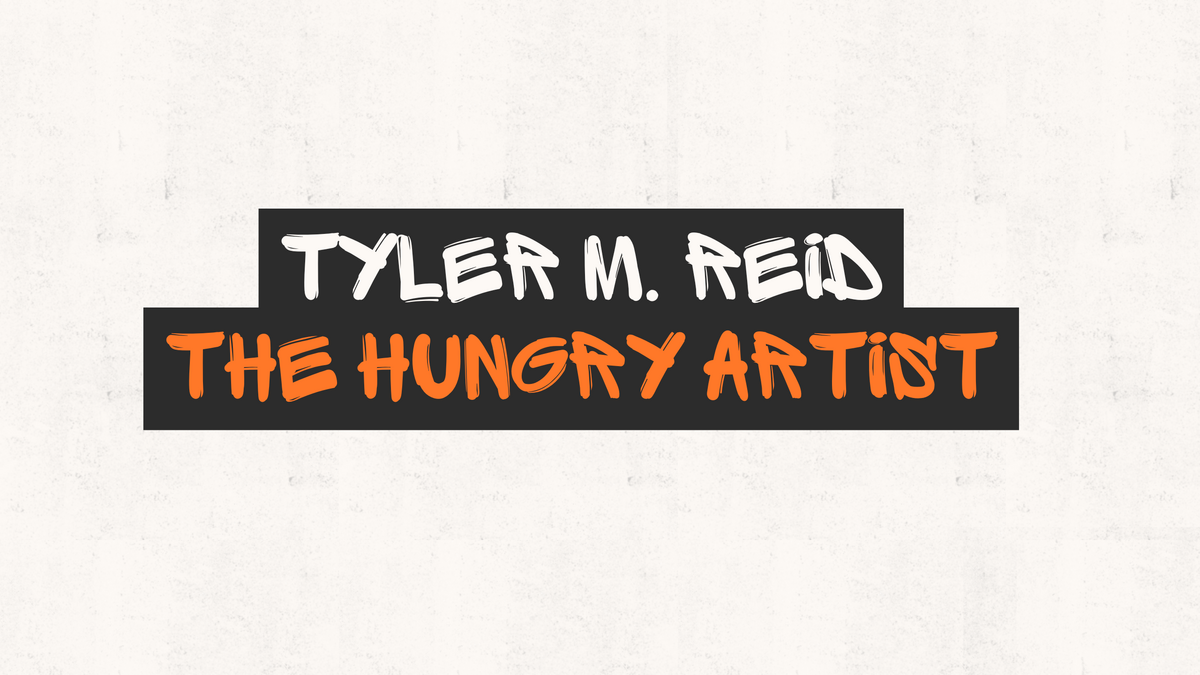Build it in the open. What Andy Weir can teach you
Andy Weir wasn’t supposed to be a bestselling author.
He was a software engineer, plugging away at code during the day and writing science fiction at night. Like so many creatives, he had manuscripts, and he did the “proper” thing, sent them off to agents, tried to get published.
The result? Rejections. Lots of them.
Eventually he gave up on traditional publishing.
But instead of shelving his work, he decided to do something different. He stopped asking permission. He started sharing in public.
That experiment changed his life. It also gave filmmakers a roadmap for building careers without waiting for gatekeepers.
I just launched a FREE Production Binder weekly email series.
This is built for indie filmmakers who want a clear guide to production paperwork. Inside you’ll find real examples of agreements, releases, and pitch decks, plus interactive templates like a working budget, stripboard schedule, and shot list. It’s a simple way to learn how this side of filmmaking works and prep your own projects with less stress, while also giving you practical tools to start using today.
From blog to breakthrough
In 2009, Weir began posting chapters of a new story, The Martian, on his personal website. He released them for free.
It wasn’t a polished novel. It wasn’t approved by a publisher. It was just a guy who loved space and science and wanted to tell a story about an astronaut stranded on Mars.
The audience that found him wasn’t huge. It was a small community of space nerds, engineers, and science fans. But they weren’t just passive readers, they became collaborators.
They fact checked his math. They flagged scientific mistakes. They gave suggestions. They asked questions. Some people may be put off by that. It’s not uncommon to feel offended when someone is pointing out mistakes and errors in your work. You may become dismissive, you may decide to just stop posting. Andy did none of that. That’s what I love about his process. He let people in. He took in those suggestions. He updated those chapters, he allowed the audience to truly become invested in what he was creating, because in a small way they were creating with him.
Each new chapter became a kind of release. A mini event. A chance for readers to invest their time and their brains into the project.
And by the time Weir reached the end of the story, he didn’t just have a book, he had an audience that felt like they owned part of it.
That ownership mattered.
Engagement, not just publishing
It’s worth pausing on the difference here.
When E.L. James put Fifty Shades into the world (starting as fanfiction), the audience spread it because it connected with them. But it was a one way street, she published, readers consumed.
With Andy Weir, it was a two way street. He invited readers into the process. He let them correct him, guide him, even argue with him. He didn’t just give them a story, he gave them the chance to help build it.
That small shift created loyalty. His readers weren’t just fans; they were invested.
For you, that’s the lesson, when you share in public, don’t just post and walk away. Engage. Make it a dialogue. Let people feel like they’re part of shaping the work.
The kindle breakthrough
Eventually, those early fans asked for something simple, a way to download the whole story to their Kindles.
So in 2011, Weir uploaded The Martian to Amazon’s Kindle Direct Publishing. He had to charge at least $0.99, the minimum price Amazon allowed.
It wasn’t supposed to be a big deal. Just a convenience for the readers he already had.
But something happened.
The book took off. Word of mouth spread. Reviews piled up. Suddenly The Martian was climbing Amazon’s science fiction charts.
And this time, agents came knocking on Weir’s door.
David Fugate, a literary agent, signed him and quickly sold:
Print rights to Crown (Penguin Random House).
Audiobook rights to Podium.
Film rights to 20th Century Fox.
Hollywood didn’t option it quietly. Drew Goddard, who loved the book, wrote the screenplay and brought Ridley Scott on board to direct. In 2015, The Martian hit theaters with Matt Damon in the lead role.
The film grossed over $630 million worldwide and was nominated for seven Oscars.
The book that no agent wanted became a #1 bestseller and a global franchise.
Build It in the open
Weir didn’t break through because he played by the rules. He broke through because he built in the open.
He didn’t hide his chapters until they were perfect. He didn’t wait for a publisher to say yes. He didn’t protect his work in a drawer.
He shared. He engaged. He grew an audience.
And when the time came, that audience carried him into the mainstream.
What this means for you
So how does this apply if you’re writing scripts or making films?
Every stage of the process gives you something you can share.
Screenwriting stage: Share a scene at a time. But don’t just drop raw pages, set the stage with a short, two sentence storytelling summary, then give the scene. Let people read it, comment, react.
Development stage: Share pitch decks, mood boards, proof of concept trailers. Treat them like Weir’s “chapters.” Each one is a chance to build interest and show the direction you’re heading.
Production stage: Share behind the scenes snippets, rough cuts, test edits. Let people feel like they’re in the room with you.
Distribution stage: Even releasing your film on a small scale, TVOD, YouTube, a niche streamer, can be your “Kindle upload.” It’s not the final stop, it’s the beginning of momentum.
The key isn’t polish. The key is consistency. Each release gives people something to latch onto, to invest in, to share.
Why this works in today’s environment
In 2025, the fastest path to growth isn’t through gatekeepers. It’s through audiences.
Streamers aren’t guessing what people want anymore, they’re looking at data. Watch time, completions, rewatches. Social chatter. Engagement.
Investors and producers aren’t just trusting pitches. They want proof that an audience exists.
Audiences themselves aren’t just consumers. They’re validators. They’re evangelists. They’re the force that can make an agent or studio come to you.
None of that happens if you keep your work hidden until it’s perfect.
“But what if someone steals it?”
This is the most common fear I hear when I suggest filmmakers share scenes or script pages.
Yes, it could happen. Someone could swipe your idea. Publishing your work online actually creates a digital timestamp. It’s proof. If someone tries to claim your work as theirs, you have a record.
And more importantly, the upside is far greater than the risk.
Andy Weir went from ignored to bestselling author because people saw his story in progress. If he had kept it hidden, afraid someone might steal it, The Martian never would have left his hard drive.
Better to risk being seen than guarantee being invisible.
Imagine the filmmaker’s version
Picture a filmmaker in Kentucky posting short proof of concepts for their feature. A filmmaker in Sweden dropping rough scenes on TikTok. A filmmaker in LA releasing their pitch deck as a visual story on Instagram.
Each piece is a “chapter.” Each one pulls in a few more people. Each one makes the audience feel like they’re on the journey with you.
By the time the film is ready, those people aren’t just casual viewers, they’re advocates. They’re already waiting for the full release.
That’s the difference between launching into silence and launching into momentum.
Gatekeepers follow audiences
Andy Weir’s story makes one thing clear, audiences create leverage.
Publishers didn’t want him. Studios didn’t care. Until readers showed up. Then the publishers came. Then the studios came.
That order matters.
It’s the same for filmmakers. Distributors, agents, and festivals will pay attention once you have an audience that proves the story connects. The audience is your calling card.
Andy Weir didn’t become a success because he played it safe. He became a success because he let people in. He built in the open.
Don’t wait for permission. Don’t wait for polish. Don’t wait for gatekeepers.
Start sharing. Build your film, your script, your proof of concept in public. Let your audience be part of the process.
Because in today’s world, the fastest way forward isn’t up the traditional ladder, it’s through the people who are already out there, waiting to invest in what you’re making.
And if you let them in, they just might carry you all the way to Mars.


